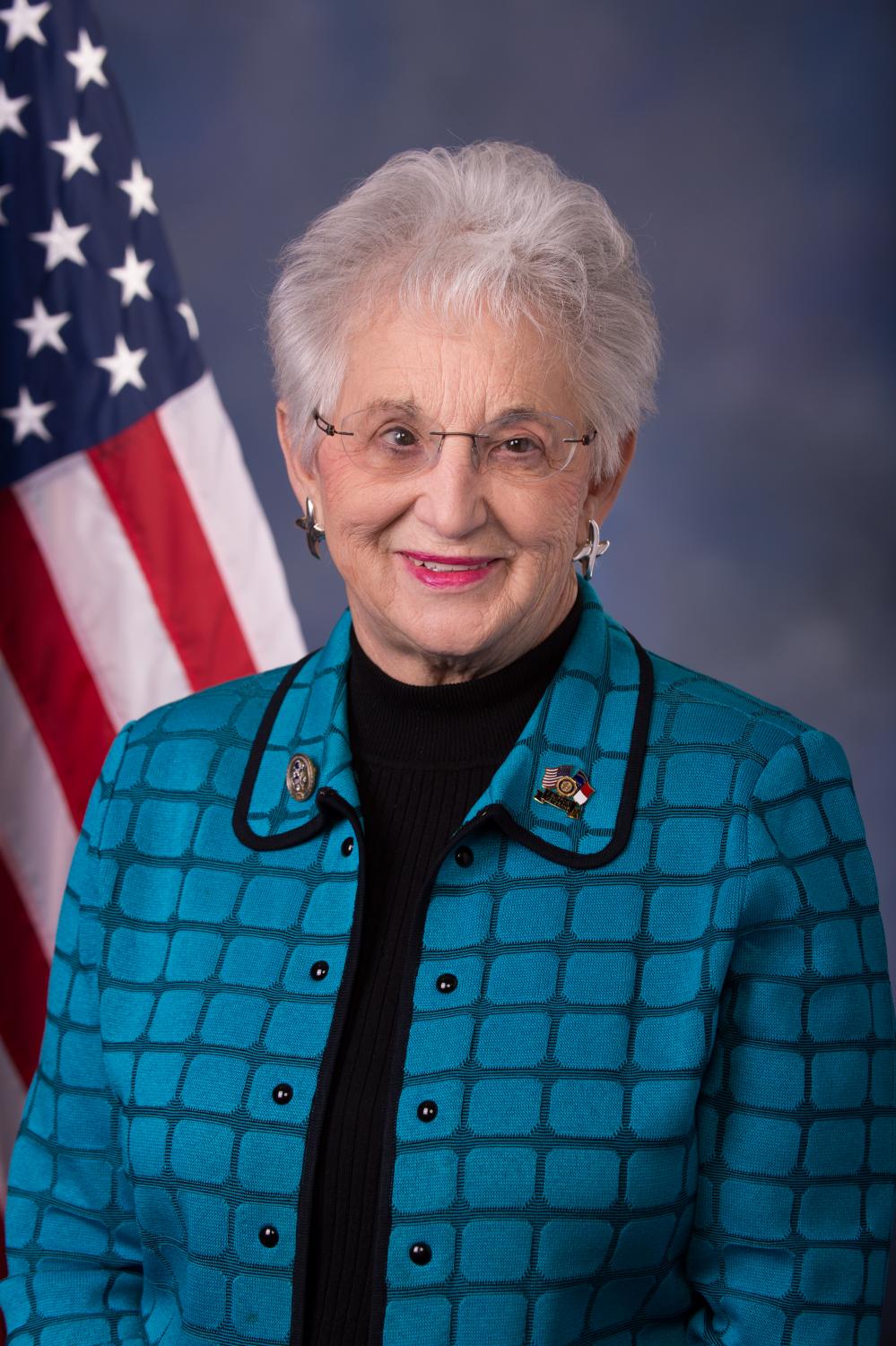Voter guide: U.S. Congressional Candidates
October 4, 2020
U.S. Senate
The following questions were sent to Thom Tillis and Cal Cunningham:
- What does an effective health care system look like to you?
- What plans do you have to boost North Carolina’s economy and address rising unemployment rates in the state?
- How do you plan to address inequities related to testing for the Black community that is harshly affected by COVID-19?
- How do you plan to address unequal internet/broadband access across North Carolina?
- Many students are concerned about student debt, do you have plans to address increasing student debt in the UNC System during the pandemic?
Thom Tillis (R – Incumbent)

- Both Republicans and Democrats agree that (the Affordable Care Act) isn’t working. I support replacing Obamacare’s broken system with a market-based solution that lowers costs, expands choice, ensures protections for patients with preexisting conditions and allows individuals to be covered by their parents’ plan up to the age of 26. While in the Senate, I’ve worked to protect those with pre-existing conditions regardless of Obamacare’s future in the courts through the Protect Act. Over 150 million Americans receive health insurance from their employers and are perfectly happy with their coverage. I will never support a government takeover of our healthcare system that takes away your employer-sponsored coverage.
- The way to bolster North Carolinians economic prospects and decrease unemployment is to lower taxes and decrease regulatory burdens. I proved that to be true as Speaker of the House in North Carolina; I cut taxes and slashed regulations, which made our state’s economy one of the strongest in the nation. In the U.S. Senate, I did the same thing. I fought for strong trade policies that allow our small businesses and farmers to flourish, worked across the aisle to provide health care and employment opportunities to our veterans. Through the pro-growth economic policies I have fought for, we achieved record-low unemployment for women and minorities and generated record high wage growth for blue-collar workers. Before this virus, I helped create one of the most prosperous economies in our nation’s history and I’ll never stop working until I do it again.
- Testing inequalities have impacted many communities in North Carolina, and especially the Black community. That’s why I called on the Trump administration to ramp up testing in early January and in March, requested additional resources to increase testing capabilities in the state. I also worked with the FDA to expedite the approval process of a COVID-19 test, which drastically expanded our testing capabilities and through the CARES Act, I helped secure $12 million to expand testing at health care facilities all across North Carolina. I have called for us to surge testing to minority communities that have been underserved during this crisis. Another aspect of combatting COVID-19 that I am focused on is making sure minority communities get access to the vaccine once it is approved. My opponent, Cal Cunningham, has said he is “hesitant” to take an FDA-approved vaccine, which is irresponsible and puts all communities at risk. I have full confidence in the FDA’s approval process and will encourage all North Carolinians to be vaccinated as soon as a COVID vaccine becomes available.
- In the Senate, I’ve worked to provide major federal investments to improve connectivity in western North Carolina. Recently, I helped secure a $23 million federal grant to expand rural broadband services across the state, and I’ll continue to push more broadband funding so every family in North Carolina who wants broadband will have access to it.
- This pandemic has hit North Carolinians hard, and the last thing students should have to worry about during such a difficult time is repaying student loans. That’s why I introduced the Student Loan Fairness Act to give loan relief to students during COVID-19. The legislation extends student loan relief for Federal Family Education Loans and Perkins Loan Program borrowers who are not covered by the CARES Act.
Cal Cunningham (D)

Provided Bio: Cal Cunningham is the Democratic nominee for U.S. Senate in North Carolina. Growing up in Lexington, Cal is a lifelong North Carolinian, dedicated to serving the people of the Tarheel State. After earning his undergraduate and law degrees at the University of North Carolina at Chapel Hill, Cal became the youngest state senator, fighting for increased investment in public education, landmark clean air legislation, and campaign finance reform. After the attacks on September 11, 2001, Cal volunteered to join the U.S. Army Reserve and has since served three active duty tours, including overseas in Iraq and Afghanistan. He now lives in Raleigh with his wife, Elizabeth, and his two kids, Caroline and Will.
- The urgent need to improve access and bring down the cost of health care is one of the most frequent issues I hear about as I’m listening to North Carolinians in this campaign, especially as hundreds of thousands of North Carolinians have lost their health care during the pandemic. I believe that all North Carolinians should have access to quality and affordable care. In the Senate, I’ll fight to protect and expand the Affordable Care Act, expand Medicaid in North Carolina, create a public option, and work to lower the cost of prescription drugs through efforts like allowing Medicare to negotiate directly with pharmaceutical companies. And I’ll stand up against the politicians and special interests that want to repeal the Affordable Care Act, including working to stop the dangerous lawsuit pushed forward by Washington Republicans that would dismantle the Affordable Care Act and its protections for the 1.7 million North Carolinians that are living with pre-existing conditions.
- Right now, the economy is steeply tilted in favor of the wealthy few and against regular families struggling to keep up with the rising cost of college, housing and medical care and still make ends meet. As North Carolina’s senator, I will fight for a more equitable economy and living wage in every community by standing with workers to support efforts to promote good-paying full-time jobs with benefits, rein in the cost of higher education and health care, defend workplace protections, and finally raise the minimum wage. And, amidst the COVID-19 pandemic, we know that North Carolina families are hurting and economic recovery efforts often reaches the most vulnerable populations last.That’s why I supported the CARES Act and its direct payments to families, as well as its expanded unemployment benefits, but more help is needed to help Americans weather this crisis. North Carolina’s unemployment assistance today has the shortest duration of all the states and one of the lowest average per-week benefits in the nation, and could hamper our recovery. That needs to change. In May, I released my COVID-19 priorities, including how to build a stronger safety net for North Carolinians. A few of those priorities are:
- Expanding the Earned Income Tax Credit and the Child Tax Credit
- Extending and increasing unemployment benefits
- Supporting families by providing workers with paid sick and family leave, and
- making childcare widely available and affordable
- Increasing access to and funding for federal food assistance programs, and boosting our agriculture economy
Last, we know that too many communities across North Carolina have seen generations of economic inequality due to institutionalized racial discrimination and the resulting disparities in inter-generational wealth. I believe we need innovative policies that break down historical barriers and encourage capital investment in communities of color and minority-owned businesses to reverse the legacy of economic injustice.
- My priorities are to first ensure better data collection and reporting on the racial and ethnic demographics about those tested for or diagnosed with COVID-19. And second, to create a task force to identify racial disparities in testing and diagnoses in order to make recommendations for the distribution of aid and supplies, and a permanent task force to study and address ongoing inequities in the health care system. We must also work to expand health care to chip away at the inequities that leave people of color less likely to have access to health care coverage.
- Expanding high-speed broadband access, particularly for our rural communities, is a critical, unmet infrastructure need, especially as the coronavirus pandemic has forced much of our daily lives online. As people continue to work from home, students, my children included, are connecting with teachers online to continue learning, and many are getting checkups via telemedicine appointments, we must make expanding rural broadband a priority. I applauded Governor (Roy) Cooper’s executive order mandating that water and electric providers not cut off service during this time, and at his strong urging, all internet service providers that serve our state should follow suit. I also believe we need to boost funding for existing federal grant programs, including those at the FCC and the Department of Agriculture, that help service providers build infrastructure to expand services, and counties and localities the ability to extend service to those who can’t afford it. Finally, we must also use the next phase of investment to help the nation get back on its feet to meet the unmet infrastructure needs of our time, not just high-speed broadband but also bringing schools, roads and bridges up to date. Doing so would save and create well-paying jobs putting people to work on these needed projects.
- The opportunity to pursue higher education should be available to anyone who seeks it — not just a privilege for those who can afford it. To achieve that, we need to lower the cost of college and reduce the burden of student loan debt, particularly for Black and brown students, who have been disproportionately impacted by the student loan crisis. We can start by expanding Pell Grants, fixing the Public Service Loan Forgiveness Program, and giving students the ability to refinance their loans at a lower rate. We should also expand and support the American Opportunity Tax Credit, and work to remove cost as a barrier to community college and technical training.
U.S. House of Representatives District 5
The following questions were sent to Virginia Foxx and David Wilson Brown:
- What does an effective health care system look like to you?
- What plans do you have to boost North Carolina’s economy and address rising unemployment rates in the state?
- How do you plan to address inequities related to testing for the black community that is harshly affected by COVID-19?
- How do you plan to address unequal internet/broadband access across North Carolina?
- Many students are concerned about student debt, do you have plans to address increasing student debt in the UNC System during the pandemic?
Virginia Foxx (R – Incumbent)
Foxx did not respond to the questions.
Health care:

“With my Republican colleagues, I remain committed to replacing ObamaCare with patient-centered health care that works for the American people.”
Foxx supported the American Health Care Act, a replacement of ObamaCare that delivers relief from ObamaCare’s taxes and other mandates that have hurt the creations of jobs. This bill returns control of health care to the states so Americans can access affordable health care options.
She also supported the Childhood Cancer Survivorship, Treatment, Access, and Research Act of 2018, that supports the collection of donated biospecimens to advance research and treatments for pediatric cancer. Foxx is also the original cosponsor of H.R. 6, the Substance Use-Disorder Prevention, which promotes opioid treatment and recovery for patients.
Jobs and the economy:
“After promising a bold agenda called A Better Way, the 115th Congress delivered on historic tax cuts, rolling back stifling regulations, revitalizing Main Street by providing relief to community banks, and strengthening career and technical education. We are now witnessing the lowest unemployment rate in decades, increases in take-home pay and extraordinarily high consumer confidence.”
Foxx has always advocated for a “fairer, simpler and lower taxes” for families and job creators.
“While these pro-growth policies and booming economy helps grant Americans with a renewed sense of confidence for the future, Congress needs to continue its work to meet the remaining challenges to America’s workers.”
Education:
“As a parent, grandparent and lifelong educator, I understand how important it is for North Carolinians to know that local teachers have the tools they need to help our children reach their potential. Education is not best when micromanaged at the federal level.”
Foxx has taken steps to restore local control of public schools by passing the Every Student Succeeds Act. This act removes the “federal footprint on K-12 education and puts important decisions about education back with parents, teachers and local leaders.”
David Wilson Brown (D)

- Medicare for all single-payer solutions is the most logical, easiest to transition to, and most financially beneficial to this nation. A single-payer solution will be a national insurance plan that will replace premiums, co-pays and other out-of-pocket costs for a significantly less overall cost increase in the Medicare taxes we are already paying. We spread the costs across our entire population and have an 800-pound gorilla fighting for our access to health care instead of blocking us from it.
- I have long championed the idea of a modern federal jobs program like the Works Progress Act. We could put Americans to work directly on the things that our communities need — fix our crumbling infrastructure; expand access to broadband; build clean energy projects to power small towns; and address environmental cleanup. We’re losing jobs to automation, not immigration. Let’s invest in America again.
- It’s unconscionable that we still do not have a national testing plan, a national requirement for masks, a singular contact tracing database, and full nationalization of (personal protective equipment) for first responders and medical staff. Because we’ve not put these common sense measures into place, underserved communities are logically those most unequally addressed. We need education for these communities and we need a leader who doesn’t undercut our health experts at every opportunity.
- See above regarding a federal jobs program. In a capitalist economy, the government has an obligation to step in where corporate profit motive fails the people. Our government’s return on investment needs fall short of the need to turn a profit and can be measured in the success of its people and growth of the tax base. We can no longer afford to allow Americans to be left behind due to inability to access broadband.
- The President can forgive federally-backed college debt with the stroke of a pen. While there will be those who argue that forgiving student debt for people who chose to take on that burden to potentially earn a better living is unfair, predatory lending and the out of control costs of higher education are setting up our nation for a financial crisis. We can potentially jumpstart our economy by forgiving at least 50k in student debt right now. Or shortly after a new President’s inauguration.
Jeff Gregory (C)

- Our healthcare system has become unaffordable. We must repeal the 1973 Hospital Act that made healthcare a profitable business, which puts profits above healthcare. Allowing competition such as buying and selling health insurance across state lines would help bring down costs. Medicare must be allowed to negotiate with pharmaceutical companies.
- Our economy has been devastated by NAFTA and unfair trade practices. Giving tax breaks to companies in N.C., who distribute American made goods and putting a surcharge on foreign goods distributed will allow N.C. to compete with foreign goods.
- Inequities exist in many communities when it comes to COVID-19. All communities should have the same medical opportunities to get the treatment and testing for COVID-19.
- Internet and broadband should be available all across North Carolina. In today’s society it is vital that everyone has the same opportunities, and internet and broadband make that possible for all of us, to some degree. I believe that the technology already exists to remedy this problem. All we have to do is open the doors of access to these technological remedies.
- The cost of education is definitely out of control. During the pandemic, costs should be frozen, and no increases allowed. The pandemic has put a great burden on students, and increasing the cost of an education should not be an additional burden.












